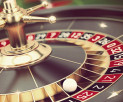RUG in fourth place in Keuzegids for masters
The RUG landed among the top four universities in this year’s Keuzegids for master progammes. Nine masters programmes achieved the status of ‘top programme’ and the nanoscience master was selected as the best master programme in the entire country.
Top programmes
The nanoscience master at the RUG received a score of 96 and is the highest-scoring research university master in the country. Students were extremely enthusiastic and the experts praised the ‘excellent’ programme.
The RUG offers 98 master programmes in total, including two in Leeuwarden. Nine of the master programmes were deemed ‘top programmes’ due to receiving a score of 76 or higher. In addition to nanoscience, the other top programmes were astronomy (88), economics and business and American studies (80), archaeology and theology & religious sciences (78), European studies: euroculture, population studies and functionality of law (76).
The masters of behavioural and social sciences, medical and pharmaceutical drug innovation and supply chain management scored high enough to achieve top programme status last year, but not in the latest edition of the guide.
Insufficient
The worst scoring master programme at the RUG was energy and environmental sciences, which received a mark of 36. According to the 61 students in the programme, the faculty is okay, but all other aspects – such as content, instructors, contact hours, scientific training and practical applicability – left them less than satisfied. The experts felt the programme itself in particular was insufficient.
The Dutch law programme also scored poorly with a mark of 42. Students were especially displeased with the working methods and the number of contact hours. Other low-scoring programmes include international relations, history, education science and psychology, all of which received a score of 46.
Small scale
In total, 70 per cent of the assessments in the Keuzegids are based on the opinions of the students on matters such as contact hours and the quality of the instructors, and the remaining 30 per cent is based on the opinions of the national accreditation inspectors.
Students who are interested in enrolling in a challenging master should seek out small scale programmes rather than following the masses, according to the Keuzegids. The smaller programmes regularly received higher quality marks. That goes for the highly lauded nanoscience programme, too: last year, only 12 students managed to make it through the strict admissions process.






